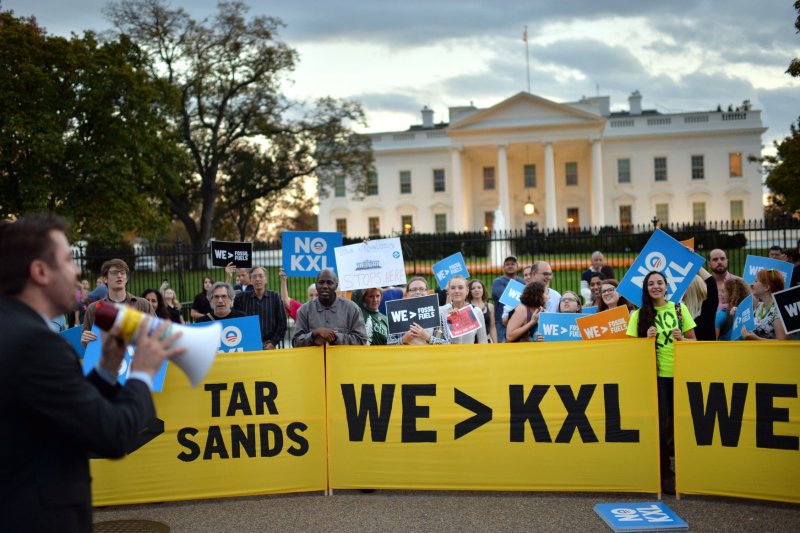TransCanada says its hotly contested Keystone XL pipeline could be at the construction stage by next year. File photo by Kevin Dietsch/UPI |
License Photo
Feb. 15 (UPI) -- After securing 20-year commitments to fill 60 percent of the Keystone XL capacity, TransCanada said Thursday it was looking to secure additional contracts.
TransCanada concluded the open season for commercial commitments to fill the Keystone XL pipeline on Jan. 18. With 500,000 barrels per day in firm commitments for the next 20 years, the company said the proposed project was contracted enough to proceed.
The January announcement on commercial commitments was unchanged from a third quarter update. The 20-year commitments represent about 60 percent of the total design capacity.
"The company will look to continue to secure additional long-term contracted volumes," the company said in announcing its fourth quarter earnings.
After the January announcement, Patrick McCully, an energy program director for the Rainforest Action Network, said it was "just bluster" from a company pretending "this unnecessary and unwanted pipeline is close to proceeding."
Regulators on the Nebraska Public Service Commission in November sided against the preferred route for Keystone XL, saying TransCanada's preferred route would've spoiled the ecologically sensitive Sandhills region in the state. The PSC said parts of the pipeline would be exposed and therefore vulnerable if TransCanada built the $8 billion pipeline as planned.
TransCanada said in the past the alternate route was unworkable. The company is still facing legal challenges as well from landowners seeking legal fees and court costs from TransCanada's claim on eminent domain.
"We are also continuing an outreach program in the communities where the pipeline will be constructed and are working collaboratively with landowners in an open and transparent way to obtain the necessary easements for the approved route," the company stated Thursday.
TransCanada reported net income for 2017 at $2.4 billion, compared to $99 million the previous year. Results were supported by the reduction in the U.S. tax rate for corporations, but offset by a $764 impairment charge on the Energy East pipeline, which the company pulled from consideration last year.
Sandy Fielden, the director for oil and products research at Morningstar, told UPI that Keystone XL could fill up if it can beat out rival projects to the market.
"Canadian producers are suffering discounts above $25 per barrel right now because pipelines to the U.S. -- including the original Keystone line -- are full to capacity and barrels are being shifted to more expensive rail transport options," he said.
The company said construction preparation for Keystone XL will advance through the rest of the year. Construction is expected to start next year.















